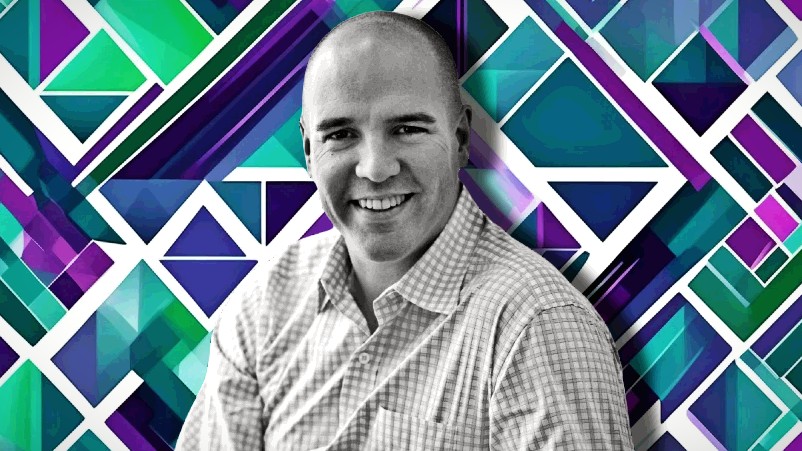‘There’s something going on’: OMG CEO Peter Horgan signals next move, successor likely local but marketer-media transparency era is over

Outgoing Omnicom Media Group CEO, Peter Horgan: “There’s enough noise to suspect there something going on. You hear about things and roll your eyes."
Omnicom Media Group’s CEO Peter Horgan announced he would leave the firm next year, after tripling the business over a decade and carving out a market position around media transparency. But he says advertisers have now lost interest – and "integrity" is no longer “a halo” for OMG’s agency brands OMD and PHD. The disclosure comes as industry rumblings have media agencies returning to the opaque practices of a decade ago that triggered a global firestorm around the digital media supply chain and undisclosed incentives, rebates, strong-arm tactics and arbitrage deals with media owners on unsold advertising inventory. Horgan accepts cooling advertiser sentiment to transparent media trading has impacted the business – but scotched rumours of his exit being partly over frustration of intensifying control and intervention by US headquarters.
Nuisance value
Media stalwart and CEO of OMG, Australia’s biggest single buyer of media, Peter Horgan has signalled he’s aiming to stick around and poke jabs after his OMG successor is in place.
“I'll be 58 next birthday, I've still got fire in the belly,” he told Mi3. “I love this industry, and I'll be around to annoy it for some years yet.”
There has long been speculation Horgan was likely to start his own venture, but he would not be drawn on details other than “something before Christmas”.
On conjecture around his frustration with head office intervention and tightening controls contributing to his decision to leave, Horgan said: “That's the way of all holdcos, and it's the way all holdcos are moving. If people have interpreted I've been frustrated by that, it's not from me. But I can be grumpy," he said. "Out of all the holdcos, Omnicom, I think, gives you the greatest latitude.”
Horgan said a global search for his successor was on but ultimately the nature of the Australian market and “relationships” meant a local appointment was probable.
“I don’t want to contaminate the process – they will look globally – but we’re aware it’s tough to parachute someone into this market which is heavily invested in relationships. The industry track record of international fly-ins has not been great.”
Equally, momentum for OMG’s network brands, PHD and OMD, is perceived by the market to have slowed after six years making the running.
“That’s a matter of record, I can’t deny that,” Horgan said. “We've grown at nearly 20 per cent CAGR for a decade and that's hard to maintain – the business has tripled. My thing has always been sustainable growth. The fundamentals of this business are absolutely fantastic, but I can't deny whether it's global clients and a bit of bad luck, the last two years of growth has not been as steep as the previous decade," he said.
"I have enormous confidence in the future trajectory of this business.”
Talk vs. walk
When asked if the transparency position of the group versus rival groups was still holding, Horgan admitted it was no longer a “halo” for his business – advertisers he said, had lost interest.
“That is disappointing. We had quite a firm position on that and it drove a lot of business for the past eight years. Certainly, I'd say that momentum has definitely slowed and that client propensity to to reward transparency, has definitely waned.”
Around 2015, explosive revelations in the US by former Mediacom boss John Gandell about secret agency rebates from media sparked a global debate. It eventually widened to the digital media supply chain which P&G global chief brand officer Marc Pritchard systematically deconstructed and concluded was “dirty” in a renowned industry speech.
“The Pritchard call out was like a grenade,” Horgan said. “Everyone was, hyper-focused on getting into the weeds of murky supply chains. Like most things, that had a half-life – we're now well into that being a new cycle.”
Smoke, fire
In the current market, there is much conjecture about media agencies returning to the opaque practices of a decade ago, which is said to include undisclosed agency incentives, rebates, strong-arm tactics and arbitrage deals with media owners on unsold advertising inventory.
When asked if the supply chain was still dirty and old opaque practices back, Horgan said: “There’s enough noise to suspect there something going on. You hear about things and roll your eyes. All I can say is, ours isn’t.”
Perhaps because of OMG’s historical pitch to the high ground, critics says Horgan and OMG are not as clear and clean as touted.
“What people might be talking about is Omnet – and the people sneering at principal-based media [deals]. The way we structure it, there are similar benefits to client and agency, on a pure opt-in basis," per the outgoing chief. "We have a philosophy of transparent end-to-end supply chains – a client will be able to see a supplier invoice, compare and see our position of no mark ups.”
Horgan defended the rise of principal-based media deals – media companies welcomed it, he said, because they could get a cash advance on their ad stocks, which in the case of OMG was “funded by treasury”.
When asked about Aimee Buchanan, a one-time successor who quit to take on the GroupM CEO role, Horgan said: “I'd just say about Aimee that she's doing an amazing job at GroupM and that turnaround is very much linked to her and the way Aimee operates.
"She should be more comfortable with the equity that she has in that turnaround, rather than picking up something that I've built.”

